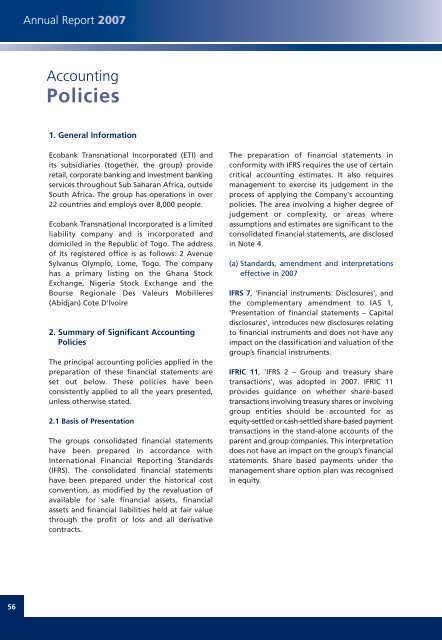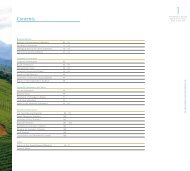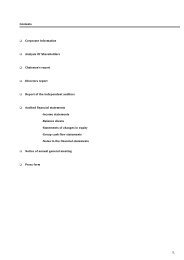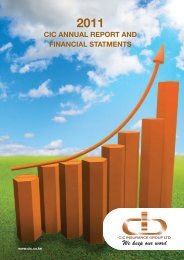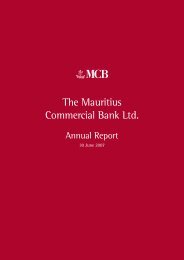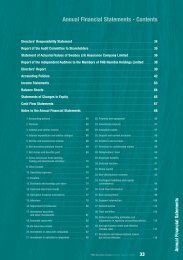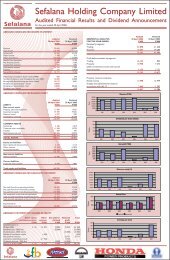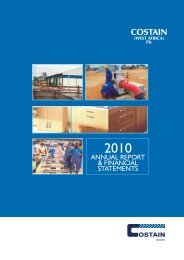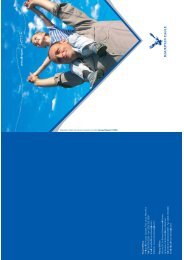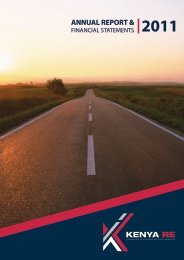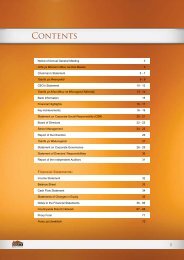Annual Report 2007 - Investing In Africa
Annual Report 2007 - Investing In Africa
Annual Report 2007 - Investing In Africa
You also want an ePaper? Increase the reach of your titles
YUMPU automatically turns print PDFs into web optimized ePapers that Google loves.
<strong>Annual</strong> <strong>Report</strong> <strong>2007</strong><br />
Accounting<br />
Policies<br />
1. General <strong>In</strong>formation<br />
Ecobank Transnational <strong>In</strong>corporated (ETI) and<br />
its subsidiaries (together, the group) provide<br />
retail, corporate banking and investment banking<br />
services throughout Sub Saharan <strong>Africa</strong>, outside<br />
South <strong>Africa</strong>. The group has operations in over<br />
22 countries and employs over 8,000 people.<br />
Ecobank Transnational <strong>In</strong>corporated is a limited<br />
liability company and is incorporated and<br />
domiciled in the Republic of Togo. The address<br />
of its registered office is as follows: 2 Avenue<br />
Sylvanus Olympio, Lome, Togo. The company<br />
has a primary listing on the Ghana Stock<br />
Exchange, Nigeria Stock Exchange and the<br />
Bourse Regionale Des Valeurs Mobilieres<br />
(Abidjan) Cote D'Ivoire<br />
2. Summary of Significant Accounting<br />
Policies<br />
The principal accounting policies applied in the<br />
preparation of these financial statements are<br />
set out below. These policies have been<br />
consistently applied to all the years presented,<br />
unless otherwise stated.<br />
2.1 Basis of Presentation<br />
The groups consolidated financial statements<br />
have been prepared in accordance with<br />
<strong>In</strong>ternational Financial <strong>Report</strong>ing Standards<br />
(IFRS). The consolidated financial statements<br />
have been prepared under the historical cost<br />
convention, as modified by the revaluation of<br />
available for sale financial assets, financial<br />
assets and financial liabilities held at fair value<br />
through the profit or loss and all derivative<br />
contracts.<br />
The preparation of financial statements in<br />
conformity with IFRS requires the use of certain<br />
critical accounting estimates. It also requires<br />
management to exercise its judgement in the<br />
process of applying the Company's accounting<br />
policies. The area involving a higher degree of<br />
judgement or complexity, or areas where<br />
assumptions and estimates are significant to the<br />
consolidated financial statements, are disclosed<br />
in Note 4.<br />
(a) Standards, amendment and interpretations<br />
effective in <strong>2007</strong><br />
IFRS 7, 'Financial instruments: Disclosures', and<br />
the complementary amendment to IAS 1,<br />
'Presentation of financial statements – Capital<br />
disclosures', introduces new disclosures relating<br />
to financial instruments and does not have any<br />
impact on the classification and valuation of the<br />
group’s financial instruments.<br />
IFRIC 11, 'IFRS 2 – Group and treasury share<br />
transactions', was adopted in <strong>2007</strong>. IFRIC 11<br />
provides guidance on whether share-based<br />
transactions involving treasury shares or involving<br />
group entities should be accounted for as<br />
equity-settled or cash-settled share-based payment<br />
transactions in the stand-alone accounts of the<br />
parent and group companies. This interpretation<br />
does not have an impact on the group’s financial<br />
statements. Share based payments under the<br />
management share option plan was recognised<br />
in equity.<br />
56


